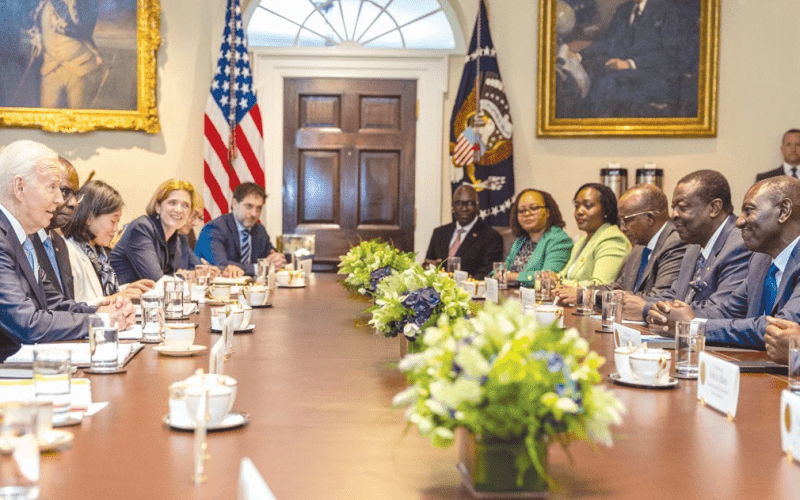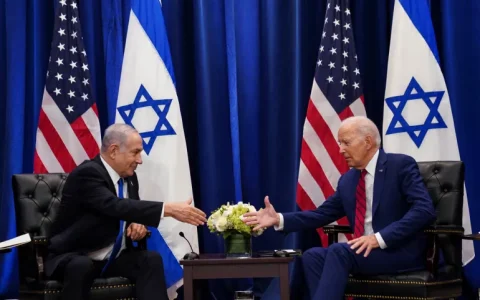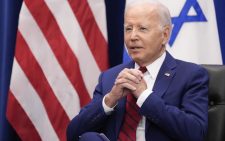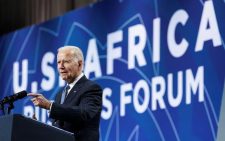Experts warn Kenya to be cautious in ties with US, EU

Experts on international relations are now warning Kenya to tread carefully in its newfound dalliance with the United States and the European Union, particularly on the issue of being asked to join the fight against Houthi rebels in Yemen.
Kenya could find itself fighting for causes that it has no interest and that in might win it more enemies on the international stage in the end, experts said.
Kenya could also pay dearly for abandoning its primary role as Africa’s neutral arbiter in regional politics and conflicts on the continent in favour of being a US and EU “vessel”, cautioned According to Prof Macharia Munene, a professor at USIU-Africa, and Machakos Deputy Governor Francis Mwangangi, who finalising his PhD thesis in international relations
‘Pleasing’ the US
Whereas former President Uhuru Kenyatta oriented the country’s foreign policy more closely towards China, President Ruto appears more interested in seeking out partnerships with the West, particularly the US, and seems ready to go the extra mile to please the latter.
“There is no logic for a country to try advancing the interests of another country. In this case of Kenya being involved in the fight against the Houthis, we are yet to be told the benefits, if there are any, that Kenya stands to gain other than antagonising various players in the war,” Mwangangi told People Daily.
While allies of the US, such as EU nations, will readily support and work with Kenya, the East African country risks losing its status as a neutral arbiter, as well as earning more enemies in some regions, Mwangangi said.
“Yes, there are some benefits, such as Kenya gaining economically and trade-wise from the Bretton Woods institutions and other financial entities, as well as Kenya’s standing on the international stage rising higher, but this would also see it earn more enemies, particularly in the Arab world,” Mwangangi warned.
The US and the EU picked Kenya to join Seychelles in prosecuting suspects in maritime crimes committed in parts of the Indian Ocean. The move came after several countries raised the alarm over threats posed by Houthi rebels in Yemen and Somalia-based pirates.
Maritime crime surge
Kenya will help handle the suspects due to a surge in cases along the eastern African Coast, threatening trade ties between many countries, he EU Naval Force said.
Last month, Spain’s ambassador to Kenya, Christina Diaz, said attacks by Houthis were a major cause of concern that needed to be addressed promptly.
Her sentiments were echoed by Italy’s ambassador to Kenya, Roberto Natali, who reaffirmed that the Houthis had staged numerous attacks in recent months, resulting in the rerouting of vessels in the Indian Ocean to a longer route through the Cape.
“Seychelles has played a key role in handling suspects arrested in the waters and now Kenya will be another country which EU has entered a legal agreement with to allow for the trial of suspected pirates arrested by warships,” Natali said.
Houthi rebels have caused devastating chaos in Yemen by seizing the northern part of the country and launching over 30 attacks on ships operating in the Red Sea.
This has led to a ripple effect in the form of a surge in the prices of agricultural produce and basic commodities.
The EU’s ambassador to Kenya, Henriette Geiger, reaffirmed that the EU’s defensive maritime security operation (EU Navfor) will extend its mandate to areas where narcotics, human trafficking and other crimes are reported.
Their sentiments were reinforced by Prime Cabinet Secretary and Foreign and Diaspora Affairs Cabinet Secretary Musalia Mudavadi, who said Kenya will remain committed to helping the US and Europe deal with the Houthis. The Red Sea channel, he noted, handles about 12 per cent of the world’s global trade and the bulk of cargo to Kenya comes through the sea.
“If ships choose another route because of disruptions in the Red Sea, we will have delays in the delivery of goods. There will also be cost implications,” he said in an interview on a Kenyan TV station.
But now Mwangangi and Professor Macharia are warning that Kenya should not offer blind support to US and EU interests for the sake of maintaining the relationships.
“What would happen if the Houthis join Al-Shabaab to retaliate against Kenya?” he asked.
“The US is known for abandoning its friends at their hour of need and this was exemplified after the 1998 terrorist attack in Nairobi.







